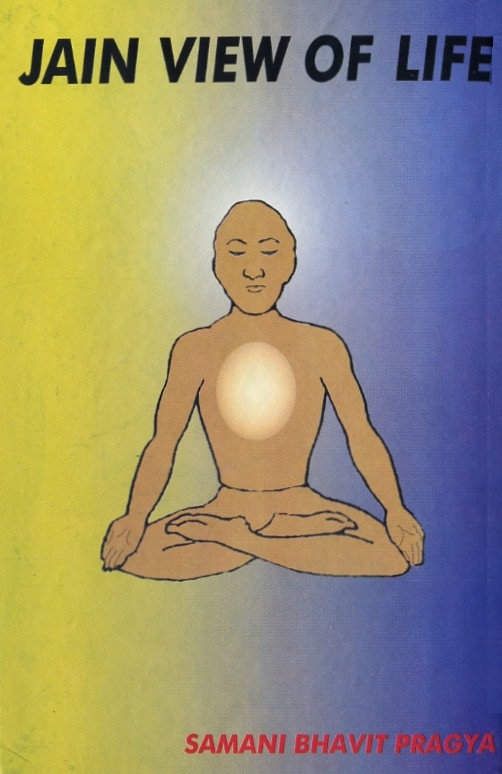Forgiveness
Kshama means forgiveness. It is a natural attribute of the soul. For example, just as water is cool by nature, the soul is forgiving by nature. As a result of the effect of heat, water becomes hot but again gradually it becomes cool. Similarly, because of some external provocation the soul becomes angry but gradually it becomes peaceful again. Even if anyone instigates you to the maximum, one should try not to become excited from within or do action from the outside. This is forgiveness. Forgiveness, forbearance and restraint are all symbols of one. Kshama includes unlimited affection. It is the most foremost and first virtue of religion. Jainism regards that there should be no room for barbaric behaviour, tit for tat, tooth for tooth and eye for eye.
Forgiveness shows magnanimity of the mind and purity of the soul, moreover the inner strength of sufferance. Revenge is nothing more than weakness of the body, mind and emotions. Whereas forgiveness is an appropriate solution for others as well as for oneself. Ignorant and narrow-minded people are generally found to be unforgiving and intolerant, while people of generous nature are the most forgiving and tolerant.
Saint Ekanath went to Banaras on a pilgrimage. The morning after having taken a bath in the river Ganga, he began climbing some steps. There was a young fellow sitting beside the bank who spat on him. The saint went down the steps and took another bath. Again the man spat on him. The saint ignored the man who was spitting on him. He quietly went back into the river to take a bath. In this way, he took bath fifty times, but he never got angry at the young man who kept spitting on him. At last the young man repented for his action and started to shed tears feeling sorry for having disgraced the saint. The saint raised a question, "Why should I forgive you?, you have provided a great benefaction to me. Due to your benevolence, today, I had the opportunity of bathing in the lap of mother Ganga fifty times. You deserve my heartfelt gratitude." This is a great example of forgiveness. It shows that you should forgive people, no matter what bad actions they do against you.
Lord Mahavira said, "uvasamena hane koham" which means conquer through forgiveness. We usually find our own temperament, which reflects in the disposition of those around us. If we are unforgiving and intolerant to others they will portray the same in return. Only the great and strong soul bestows love. Real bravery is to forgive others. Tirthankaras are known as "Khamasura titthayara" that means inspite of having unlimited powers they tolerate all types of mischievous behaviours, insults, adverse situations, inflicted by others. While tolerating humans, providential tortures and sufferings given by them, the great souls never deviate from the religion of forgiveness. Milk is always pure, sweet and natural, whether it is heated, transformed or churned. Even then also it gives butter. Similarly, the great soul also do the same.
The chief of Sindhu Sauvir king udayana caught the chief ujjayini Chand Pradyot and he was prisoned on the great occasion of samvatsari, king Udayana observed fast, performed religious rites and rituals in the paushadshala. King Udayana completed samvatsari pratikraman in the evening and sought forgiveness from all in the world for any sinful activities committed in the year. He came to Pradyot and said to him, "I seek forgiveness for all your sufferings that I have inflicted upon you. He further added, "Chand Pradyot, today is the great festival of samvatsari that means to forgive and to grant forgiveness. On this auspicious day, I forgive you whole heartily and ask for forgiveness heartily." Chand Pradyot said to him, "what a mockery of forgiveness it is? Can a captive forgive someone whilst sitting in prison. It is hard to make my mind pure towards you sitting in prison." Listening and thinking upon it Udayana stepped forward and freed Pradyot from his shackles. Both of their hearts developed ties of love together. In such a way king Udayana set an example to seek forgiveness and grant forgiveness.
The formula for forgiveness is that one must weigh all the pros and cons of the cause of anger. If one realises the reason for existence and non-existence of anger, their resistance power will be much greater.
The religion forgiveness emphasizes give and seek forgiveness heartily. To ask for forgiveness from all human beings who in their past or present life may have suffered because of us. To forgive those who have hurt me and to forgive their shortcomings and weaknesses. Forgiveness has a capability to create the bond of love among the countless hearts. Jainism preaches, "I grant forgiveness to all human beings and all human beings should grant me forgiveness. My friendship is with all human beings. My enmity is totally non-existent."
 Samani Bhavit Pragya
Samani Bhavit Pragya
